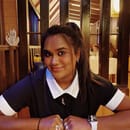Over October break, I was fortunate enough to attend the show “Wicked” on Broadway, at the Gershwin Theatre in New York City. I was familiar with “Wicked”, because a common title associated with Broadway is the infamous “Wicked”. I really had no idea what to expect going into the show other than the fact that only the best of the best make it on Broadway. The show completely exceeded my expectations, showing me that true magic lives on Broadway.
The musical is based on the land of Oz, before the story the “Wizard of Oz”. The two lead characters, Elphaba and Glinda are the two story tellers of the musical, who go through major changes which conclude in evident character development in Elphaba. Character development is demonstrated through two primary themes in the show: coming of age and acceptance.
“Wicked” is focused around Elphaba and her coming of age as the ‘wicked witch’ from a young girl. The musical begins with Elphaba as a misunderstood witch in grade school, ostracized by her peers and her family, on account of her different appearance, primarily due to her green skin. Throughout the duration of the musical, Elphaba changes her age, confidence, and poise from a weak character to an emotionally resilient woman.
The change that took place for Elphaba to step into her role of becoming the wicked witch of the west was instigated by the wizard as a ploy to use her powers. The actors exhibit resilience and story through song and perfect execution of body language. An important theatrical device I noticed was prominent in the show was volume in voice. Naturally, to be on Broadway one must be loud and have the ability to project. In the most professional way, when the actors wanted to emphasize points, through dynamic changes which was notable in gaining familiarity with the characters; especially Glinda.
The overall objective of both witches, Glinda and Elphaba, is to be recognized. Glinda has a strong desire to be wanted, liked, and needed. The songs in addition to the script make it easy for the audience to understand and follow the storyline, which is a huge part of what makes this musical so professional. There are many songs in the musical that emphasize the theme of coming of age, such as “Popular.” “What Is This Feeling,” and “Defying Gravity.”
Along with the script, the musical numbers are a perfect example of a way the actors are able to tell a story, introduce characters, and emphasize feelings while ensuring that the audience is able to feel the energy on stage. I feel as though it is imperative to take note of the dialogue used in the play in relation to the story. They say that magic happens when it comes to Broadway shows, and after seeing this show, I could not agree more. The lighting, the props and the entire room was filled with emotion.
The song most important and one of the most notable surrounding “Wicked”, is “Defying Gravity.” The song is sung primarily by Elphaba, with a slight interlude from Glinda, all about her conclusion of coming of age. “Defying Gravity” is performed as a powerful balad, which asserts the dominance and strength of Elphaba. This musical number gives an understanding of how strong and fully-rounded her character has become from the beginning. Additionally, this number emphasizes the importance of the overall character of Elphaba. It provides a strong emotional connection to the audience and Elphaba.
Although the duration of the show is approximately 3 hours, time flies by leaving the audience simply wanting more. For anyone looking to see a Broadway show, the iconic “Wicked” is not one to miss.


